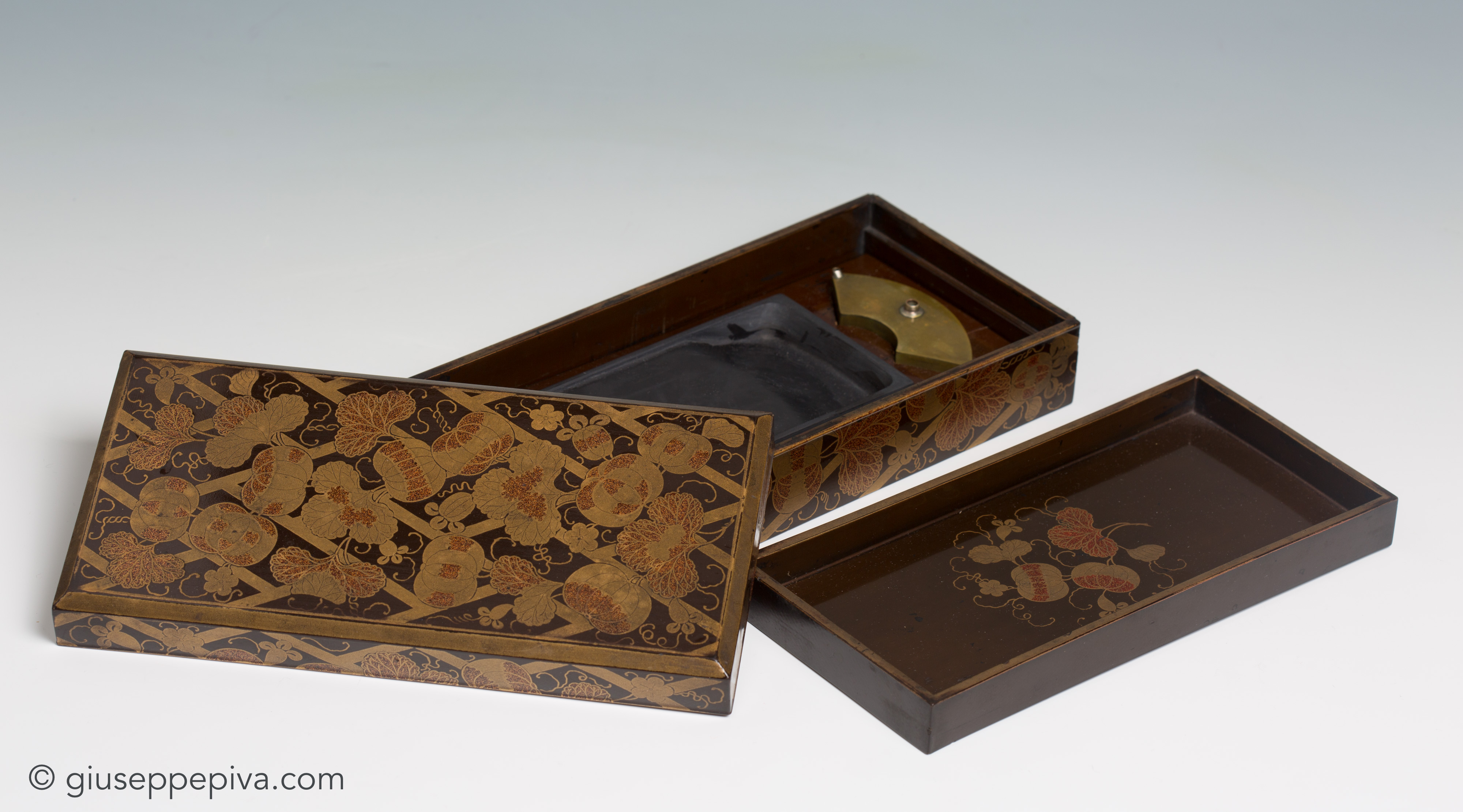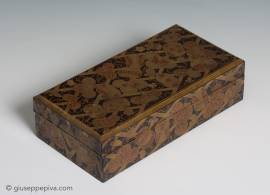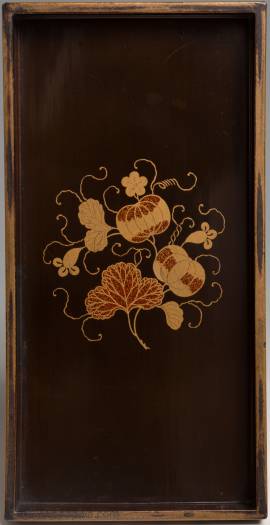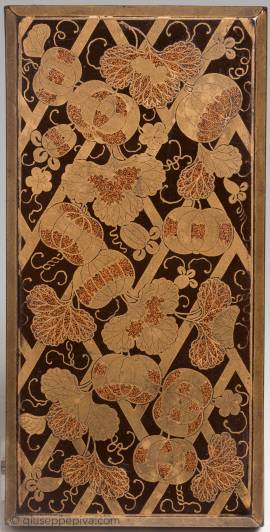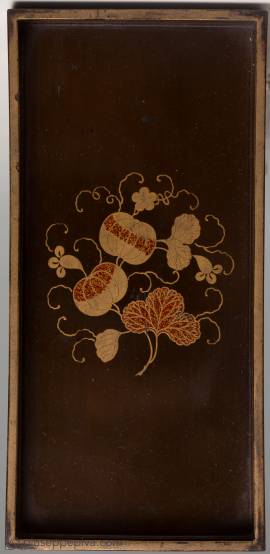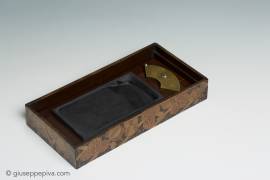Suzuribako antique wooden writing box from Momoyama period (1575-1615)
Momoyama period (1575-1615)
19 by 9.5 cm; 5 cm high
The rectangular box and cover with inner tray decorated in gold maki-e on a black ground with a pattern of melons against a lattice fence.
The design of lattice fence is typical from the Momoyama period and is generally associated with autumn plants. The combination of techniques used to apply the design include gold hiramaki-e (flat sprinkle picture), e-nashiji (reddish “pear-skin” speckled surface used in specific areas) and harigaki (fine needle drawing on a dense gold ground). These three techniques are typical of the kodai-ji maki-e, a type of lacquerware decoration original from the Momoyama period. Until the medieval period, in fact, maki-e lacquer was used mostly to decorate furnishings for courtiers; during the 16th century, with the rise of the warrior class, a lavish new style of lacquerware emerged: tableware, furniture, and objects, which had not previously been decorated in maki-e are now enriched with gold designs. The name of this antique decorative style originated in Kodai-ji, the temple that O-ne, the wife of Toyotomi Hideyoshi (1536-1598), built in Kyoto to pray for the repose of her husband. Quintessential examples of this style consist of the temple’s altar and Hideyoshi’s and O-ne’s interior furnishings, which have black lacquered surfaces decorated with autumn grasses in the maki-e technique.
Price band: 5,000€ - 10,000€
Antique original suzuribako for sale. Price on application. Please include item stock number: lacc-1178
Inventory Nr: 1178
Info works
Copyright © 2016 - giuseppe piva - VAT: 05104180962


